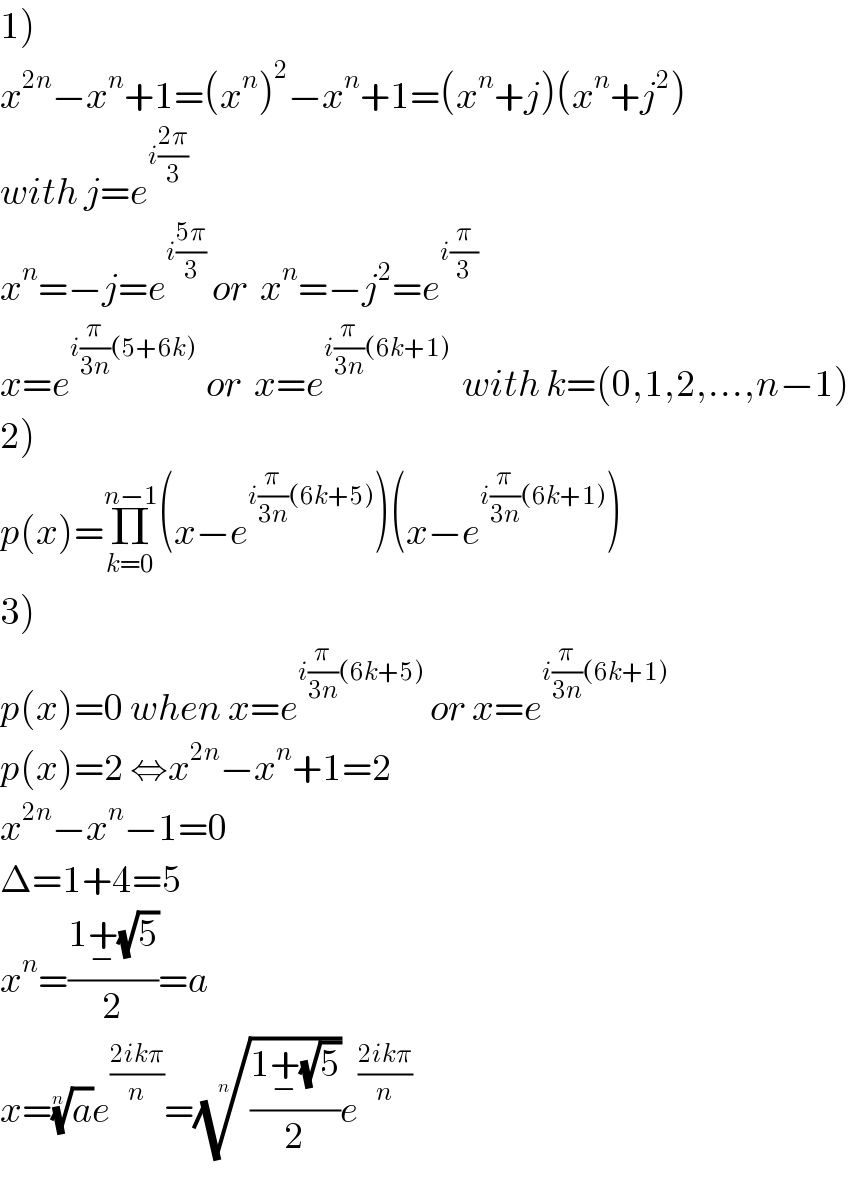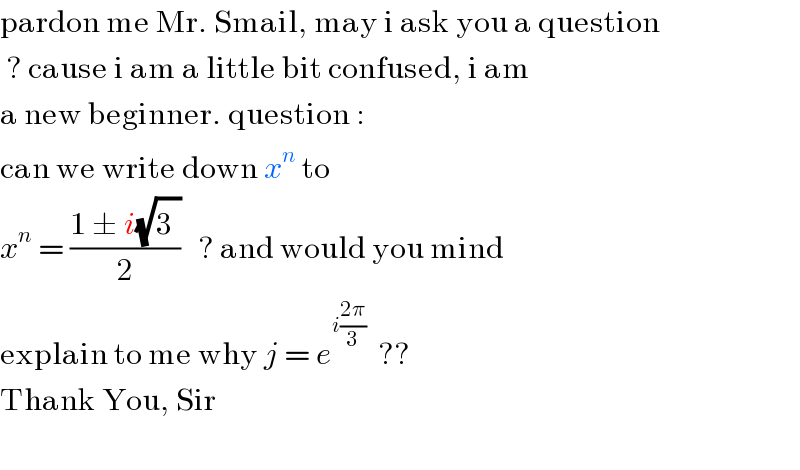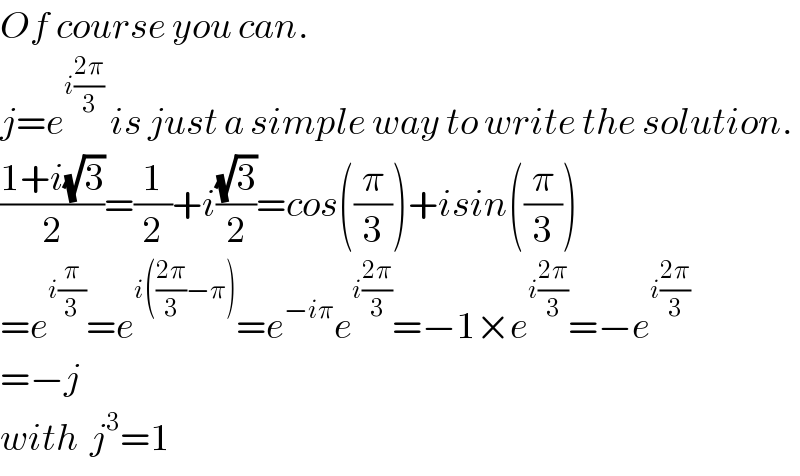Question Number 49647 by maxmathsup by imad last updated on 08/Dec/18
![let p(x) =x^(2n) −x^n +1 1) determine the roots of p(x) 2) factorize inside C[x] the polynom p(x) . 3)solve p(x)=0 and p(x) =2](https://www.tinkutara.com/question/Q49647.png)
Commented by maxmathsup by imad last updated on 08/Dec/18
![let put x^n =t ⇒x^(2n) −x^n +1 =t^2 −t +1 Δ = 1−4 =−3 =(i(√3))^2 ⇒t_1 = ((1+i(√3))/2) and t_2 =((1−i(√3))/2) ⇒t_1 =e^((iπ)/3) and t_2 =e^(−((iπ)/3)) ⇒p(x)=(x^n −e^((iπ)/3) )(x^n −e^(−((iπ)/3)) )so p(x)=0 ⇔x^n =e^((iπ)/3) or x^n =e^(−((iπ)/3)) let solve x^n =e^((iπ)/3) x=r e^(iθ) ⇒r^n e^(inθ) =e^((iπ)/3) ⇒r=1 and nθ=(π/3)+2kπ ⇒ θ_k =(π/(3n)) +((2kπ)/n) with k∈[[0,n−1]] ⇒ x_k =e^(i((π/(3n))+((2kπ)/n))) also x^n =e^(−((iπ)/3)) give t_k =e^(i(−(π/(3n))+((2kπ)/n))) k∈[[0,n−1]] so the roots of p(x) are x_k and t_k . 2)p(x) =Π_(k=0) ^(n−1) (x−x_k ) Π_(k=0) ^(n−1) (x−t_k ) =Π_(k=0) ^(n−1) (x−x_k )(x−x_k ^− ) with x_k = e^(i((π/(3n))+((2kπ)/n)))](https://www.tinkutara.com/question/Q49663.png)
Commented by maxmathsup by imad last updated on 08/Dec/18

Commented by maxmathsup by imad last updated on 08/Dec/18
![p(x)=2 ⇒x^(2n) −x^n +1=2 ⇒x^(2n) −x^n −1 =0 Δ =1+4 =5 ⇒x^n =((1+(√5))/2) or x^n =((1−(√5))/2) x^n =a (a=((1+(√5))/2)) ⇒ x^n =(^n (√a))^n ⇒ ((x/((^n (√a)))))^n =e^(i(2kπ)) ⇒ (x/((^n (√a)))) = e^((i2kπ)/n) ⇒x_k =^n (√a) e^((i2kπ)/n) with k from[[0,n−1]] also x^n =((1−(√5))/2) (=α) ⇒x =^n (√α)e^((i2kπ)/n) with 0≤k≤n−1](https://www.tinkutara.com/question/Q49665.png)
Answered by Smail last updated on 08/Dec/18

Commented by afachri last updated on 08/Dec/18

Commented by Smail last updated on 08/Dec/18

Commented by Smail last updated on 08/Dec/18

Commented by afachri last updated on 09/Dec/18

Commented by Smail last updated on 09/Dec/18

